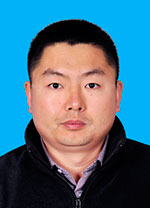Invited Speaker---Assoc. Prof. Guoqiang Zhong

Department of Computer Science and Technology, Ocean University of China, China
Biography: Guoqiang Zhong received his BS degree in Mathematics from Hebei Normal University, Shijiazhuang, China, his MS degree in Operations Research and Cybernetics from Beijing University of Technology (BJUT), Beijing, China, and his PhD in Pattern Recognition and Intelligent Systems from Institute of Automation, Chinese Academy of Sciences (CASIA), Beijing, China, in 2004, 2007 and 2011, respectively. Between October 2011 and July 2013, he was a Postdoctoral Fellow with the Synchromedia Laboratory for Multimedia Communication in Telepresence, Ecole de Technologie Superieure (ETS), University of Quebec, Montreal, Canada. In March 2014, he joined the Department of Computer Science and Technology, Ocean University of China (OUC), Qingdao, China. Currently, he is an associate professor with OUC. Dr. Zhong has published one translated book, 3 book chapters and more than 30 technical papers in the areas of artificial intelligence, pattern recognition, machine learning and data mining. Some of his papers are published in influential journals and top conferences, such as Neural Computation, Pattern Recognition, AAAI, ICDM and IJCAI. His research interests include pattern recognition and machine learning, especially deep learning, and their applications on large scale data. He is a member of ACM, IEEE, IAPR, CCF, CAA and CAAI, member of technical committee of CAA-PRMI and CAAI-PR. He is the winner of the outstanding reviewer award of Pattern Recognition for the years of 2014 and 2015. Moreover, he serves as TPC members of some international conferences and reviewers for journals in the area of artificial intelligence, such as TNNLS, TCSVT, Pattern Recognition and Neurocomputing.
Speech Title: Tensor Representation Learning for Pattern Recognition and Data Mining
Abstract: In nature, many types of data in real world applications can be represented in the form of tensors. To simulate the human perceptual systems, we exploit models for tensor representation learning. Three novel models will be presented in this talk. They are large margin low rank tensor analysis (LMLRTA), tensor representation learning based image patch analysis (TRL-IPA), and low rank tensor learning with discriminant analysis (LRTLDA). Their applications to face recognition, object classification, ancient document understanding and action classification are tested. Extensive experiments with comparison against state-of-the-art approaches demonstrate the effectiveness of the new models.